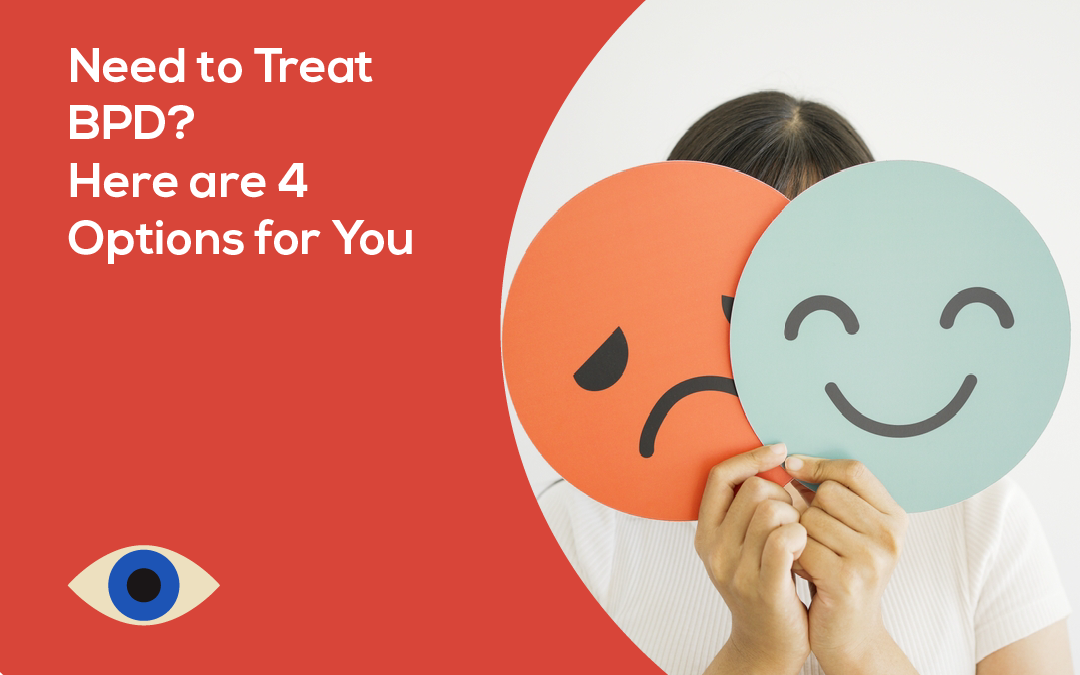Borderline Personality Disorder (BPD) can be a real challenge to navigate, but don’t worry, we’ve got you covered! While pills can work, we get that lots of people want to try different things. So put on your comfiest PJs, grab a cup of tea, and let’s dive into four fantastic non-medication treatment options for BPD.
1. Dialectical Behavior Therapy (DBT)

Imagine having a superpower that helps you regulate your emotions, tolerate distress, and improve relationships. DBT: That’s how you’ll get better! Learn to manage overwhelming emotions—a key feature of BPD—with this therapy from Marsha Linehan. Facing hard times? With these resources, you’ll be well-prepared to meet any difficulty head-on; you’ll succeed. With DBT, you’ll learn how to:
- Recognize and label your emotions
- Tolerate distress without resorting to maladaptive coping mechanisms
- Improve relationships by being more mindful and effective in your interactions
DBT is all about finding that delicate balance between accepting yourself and changing your behaviors. It’s like having a BPD superhero cape – it helps you navigate the ups and downs of life with confidence and poise!
2. Mentalization-Based Treatment (MBT)
Ever felt like you’re stuck in a never-ending cycle of negative thoughts and emotions? MBT is your escape! Mentalizing—getting a grasp on your own and others’ thoughts, feelings, and motivations—is what this therapy is all about. Better relationships and decisions? This tool? Prepare for a big shift; this changes everything. Seriously. Think of it like learning a new language—the language of the mind. With MBT, you’ll learn how to:
- Recognize and challenge negative thought patterns
- Develop a more compassionate and empathetic understanding of yourself and others
- Improve relationships by being more attuned to the emotional needs of others
MBT is like having a personal coach who helps you develop a deeper understanding of yourself and others. Mental health and relationships are connected. A boost in one often means a boost in the other. Consider this: Kindness and empathy flow more easily when you’re feeling upbeat. This positive feedback loop strengthens relationships; consider how much easier it is to connect with someone who’s also in a good mood. The effect is simple but really works. This is how you get them.
3. Cognitive Behavioral Therapy (CBT)
Think of CBT as a refreshing detox for your mind! BPD symptoms? This therapy teaches you how to identify and actively dispute the negative thinking patterns behind them – what we call cognitive distortions. With CBT, you’ll learn how to:
- Recognize and challenge negative self-talk
- Develop more balanced and realistic thinking patterns
- Improve coping skills and develop more effective problem-solving strategies
CBT is like having a personal trainer for your brain – it helps you build mental muscle and develop a more positive, resilient mindset.
4. Interpersonal & Social Rhythm Therapy (IPSRT)
Imagine having a sense of control and stability in your daily life, even when faced with challenging situations. That’s what IPSRT can offer! Facing life’s challenges will become easier. Want a better daily routine? Stronger relationships? More confidence? Count on me—we’ll achieve our shared objective. You’ll feel more capable. With IPSRT, you’ll learn how to:
- Establish a consistent daily routine to regulate your mood and emotions
- Improve relationships by being more effective in your interactions
- Develop a greater sense of purpose and direction in life
IPSRT is like having a personal assistant who helps you get your life back on track. Feeling lost? Feeling more stable and in charge is within reach. This plan works really well and is easy to follow.

So, there you have it – four fantastic non-medication treatment options for BPD! Managing BPD symptoms and boosting your mental health is possible with these varied therapies. Each one tackles the problem differently. Remember, you don’t have to face BPD alone – there are many effective treatment options available to help you thrive.




0 Comments